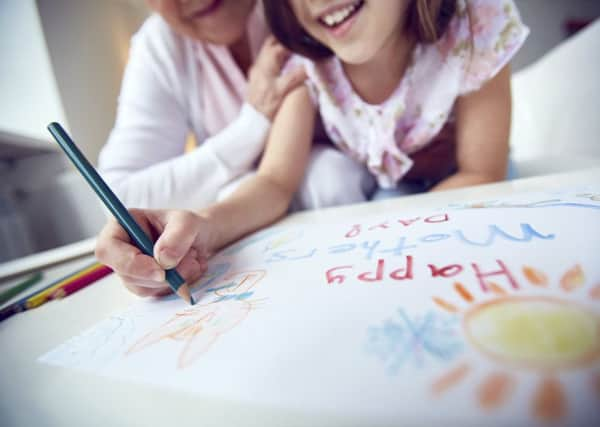Megan Sutherland: Youngsters in care are real people


As a 17-year-old with no interest in newspapers, I find it strange to be writing an article for the Scotsman.
However, I find it even more strange that I was asked to, because I am in care. And in my experience, many in society interpret that to mean I’m a troublesome teen and won’t achieve anything positive.
Advertisement
Hide AdAdvertisement
Hide AdBut that is exactly why I have come to write this article – those people are wrong. Care-experienced people have a great deal to offer and we celebrated this last week through National Care Leavers Week Scotland.
I don’t know where the stigma of care comes from. Most young people are taken into care because they have been victims of an offence or neglect, not because we’re “bad kids”.
Being taken into care often means being removed from your parents, siblings, friends and everyone you’ve known. Many of us are relocated by social services to another part of the country, where a family we’ve never met has a space for us. If that wasn’t hard enough, we also have to learn to cope with the trauma that led to us needing to be taken into care.
Life before and during is challenging. To achieve success after care means having to disprove the systematic myth that people brought up in care just won’t make it.
I was one of the lucky ones. People didn’t just care for me, they stepped up and became my surrogate parents. They treated me as their own child. They wanted me to succeed, they believed in me and their words were backed up by action.
I know that for other young people care can feel clinical. It happens Monday to Friday, 9-5, or on a special “out of hours” basis. That’s very different from being loved. When you don’t think people truly care about you, you don’t bother taking care of yourself either. You don’t believe you can do anything positive because you don’t have the same encouragement and push from parents that 98 per cent of the population does. So it stands to reason that we struggle to achieve what 98 per cent of the population does. Despite being born with the same capabilities as everyone else.
The people who cared the most for me, taught me to trust and helped me to achieve my aspirations, didn’t have an outline of how to do that in a job description. They were secretaries, teachers, joiners, mums of my classmates. They took the time to show an interest in me and made me a part of their family. They provided me with the absent love of a parent. Despite the numerous professionals involved in “caring” for me, it was the people who helped me not because they were obligated to, but because they truly wanted to that I have to thank the most for the successful person I have become.
We can give you our stories of abuse and neglect. Tell you how lonely and isolating being in care is. Show you brutal statistics telling us we’re destined to fail. Then, try to convince you that when everyday people like you reading this article reach out to us and give us the time and love we need, we can do amazing things. Before that though, I need you to know that the care “system” isn’t something for other people to deliver. Until you do something to help us, nothing is going to change.
Advertisement
Hide AdAdvertisement
Hide AdPeople raise their own children to be successful doctors or businessmen or parents or astronauts, if that’s what they want to be.
We’re no different; we have aspirations too. Care just makes our dreams dormant.
We need society to step into the role where our parents should be and help us wake our dreams up. We’re your children.
With five million people in Scotland, and only 15,500 young people in care, nobody should feel like they aren’t part of a family or don’t belong anywhere. If enough of Scotland cared about us, then, despite our parent’s actions, we wouldn’t have to suffer from them.
In ten years, I desperately hope the stereotypical nonsense associated with the abused or neglected children of the country is extinct. I hope members of society who haven’t known the experiences we have at such a vulnerable age will think themselves lucky. Reach out to us in an attempt to narrow the gap between our childhood experiences so that young people in care can confidently focus on their dreams and aim for all they are capable of.
• Megan Sutherland is a care-experienced campaigner and volunteer with the charity Who Cares? Scotland, and a member of the Scottish Children’s Services Coalitions